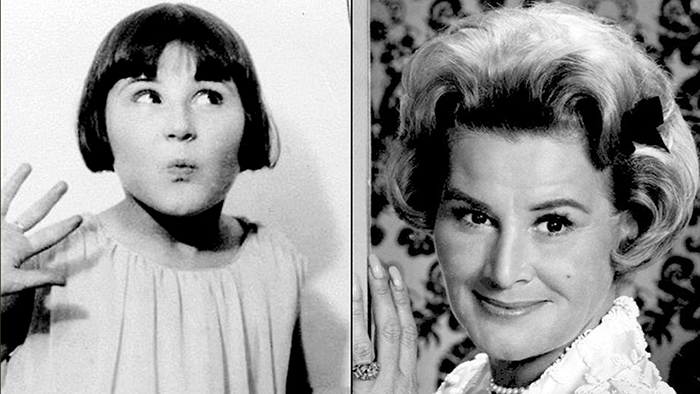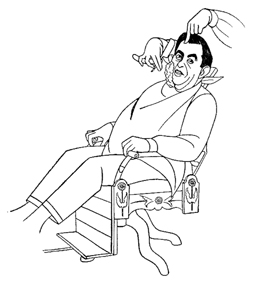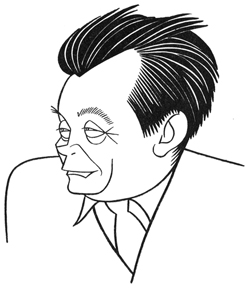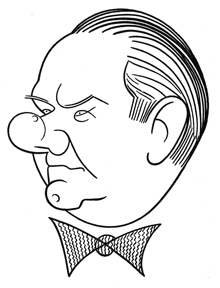Here are 10 things you should know about Mae Clarke, born 113 years ago today. Her career in vaudeville, on Broadway, in pictures and on television spanned nearly 50 years.
Tag: Atlantic City
Remembering Rose Marie: 90 Years a Trouper

Few entertainers in history enjoyed as long a career as did Rose Marie, born 100 years ago today. Her career began when she was just four years old (known then as Baby Rose Marie, she had a weekly radio program that was broadcast nationally before Shirley Temple was even born), and she went on to enjoy success in vaudeville, radio, records, motion pictures, Broadway, and television.
In 2017, a delightful documentary, Wait for Your Laugh, was released that told the story of her amazing life and career, and we’re delighted to share a very lightly edited transcript of a telephone conversation we had with her shortly after the film’s release. Buckle your seat belts; it’s a delightfully wild ride. As you’ll soon see, even at 94, Rose Marie was as sharp and as funny as ever.
Cladrite Radio: I have a lot of things I’d like to talk to you about.
Rose Marie: First of all, let me ask you a question.
Cladrite Radio: Sure.
Rose Marie: Did you see the movie [Wait for Your Laugh]?
Cladrite Radio: I did!
Rose Marie: What’d you think of it?
Cladrite Radio: I loved it. I thought it was great.
Rose Marie: What’d you like about it?
Cladrite Radio: I’m very interested in the popular culture of the 1920s, ‘30s and ‘40s, in addition to …
Rose Marie: That’s my era.
Cladrite Radio: It sure is. I am involved with an online radio station that features music of that era. We play some of your records on the station.
Rose Marie: Oh, nice.
Cladrite Radio: When I got the chance to interview you, I was so excited. I’m a fan of your music, and I grew up with you on TV as well.
Rose Marie: I know, everybody says that. It makes me feel so old.
Cladrite Radio: Oh, well, I’m not so young myself.
Rose Marie: I’m 94, wanna bet?
Cladrite Radio: You’re doing great. You’re probably doing better at 94 than I am at 59.
Rose Marie: Okay.
Cladrite Radio: I wanted to ask you about the documentary. Whose idea…
Rose Marie: I’m very happy to tell you. I’m very proud of it. I love it. I’m so proud of [director] Jason Wise, I can’t stand it. I think he’s a genius. I think he’s going to be one of the biggest men in the business in a couple years. I think this will introduce him to everybody. I think he’ll even be bigger than Steven Spielberg.
Cladrite Radio: I’ll bet he wouldn’t mind that a bit.
Rose Marie: Oh, he’s wonderful. You have no idea. You don’t know how particular he is. When we decided to do this thing, I kept everything from the time I was three years old. Postcards, pictures, film, anything I had, I kept. When he talked about doing the documentary, he says, “Let’s talk.” I said, “I have everything in scrapbooks. Why don’t you just go through everything?” I emptied out my house, and I mean he cleaned me out of everything. He put it in that documentary. Just a genius.
Cladrite Radio: All the materials that we see in the documentary, the film clips we see and some of the programs and promotional materials and various things that are included in it…
Rose Marie: All mine. All mine that he dug up out of my house.
Read More »
Times Square Tintypes: W. C. Fields
“NEVER GIVE A SUCKER AN EVEN BREAK”
Times Square Tintypes: John Golden
“PURE AS THE DRIVEN SNOW”
 Was once a bricklayer and the vice president of a chemical company. From the experience gained at the latter he is proficient in making gin.
Was once a bricklayer and the vice president of a chemical company. From the experience gained at the latter he is proficient in making gin.Times Square Tintypes: Samuel Shipman
 SAMUEL SHIPMAN. When he was graduated from Columbia this line appeared under his picture in the college book: “God Makes Some Strange Things.”
SAMUEL SHIPMAN. When he was graduated from Columbia this line appeared under his picture in the college book: “God Makes Some Strange Things.”
